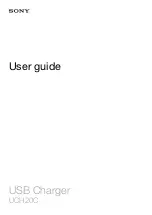
SENS EnerGenius Technical Manual
18
Service hotline: 1.800.742.2326
1.303.678.7500
RELAY
CONTACTS
BATTERY
FAULT
ALARM
AC FAIL
ALARM
CHARGER
FAIL
ALARM
HIGH BATTERY
ALARM
(HI DC)
LOW BATTERY
ALARM
(LO DC)
COMMON TB5-1
COM
TB5-4
COM
TB5-7
COM
TB5-10
COM
TB5-13
COM
OPEN ON
ALARM
TB5-2
OK
TB5-5
OK
TB5-8
OK
TB5-11
OK
TB5-14
OK
CLOSE ON
ALARM
TB5-3
FAIL
Defaults to OK
with no AC
input
TB5-6
FAIL
Defaults to
Fail with no
AC input
TB5-9
FAIL
Defaults to
OK with no
AC input
TB5-12
FAIL
Defaults to OK
with no battery
TB5-15
FAIL
Defaults to fail
with no battery
C. ALARM DESCRIPTION, FIVE ALARM MODEL:
RELAY
CONTACTS
Not Used
*
MASTER
ALARM
Not Used
Not Used
Not Used
COMMON TB5-1
No
Connection
TB5-4
COM
TB5-7 No
Connection
TB5-10 No Con-
nection
TB5-13 No Con-
nection
OPEN ON
ALARM
TB5-2 No
Connection
TB5-5
OK
TB5-8 No
Connection
TB5-11 No Con-
nection
TB5-14 No Con-
nection
CLOSE ON
ALARM
TB5-3 No
Connection
TB5-6
FAIL
Defaults to
Fail with no
AC input
TB5-9 No
Connection
TB5-12 No Con-
nection
TB5-15 No Con-
nection
D. ALARM DESCRIPTION, ONE ALARM MODEL:
NORMAL SET UP:
1.
Apply AC power by closing the branch circuit breaker and any other disconnect devices.
2.
The meter display should light immediately after power on. The green
AC/ ON
LED should be lighted. If a temperature sensor is present, either internal or remote, the green
T-COMP
(Temperature Compensation) LED should be lighted.
3.
After a short delay (typically 10 seconds or less), the charger will produce output. If the meter display jumper is
selected to read Volts or automatic Volts/Amps, the voltmeter reading should increase, indicating the battery is
being charged.
4.
If the meter display jumper is selected to read Amps or automatic Volts/Amps:
•
Current should be close to 10A if the battery requires recharging. If automatic boost is enabled, the
BOOST
MODE
LED may light, in which case the battery will be charged until it reaches 106% of the float voltage. If
boost is disabled, the green
FLOAT MODE
LED should be on and the battery will charge until it reaches the
float voltage setting.
•
Output current will be low if the battery is fully charged, possibly too low to read on the meter. This is normal,
provided the correct charging voltage is present. The green
FLOAT MODE
LED should light up when output
current is below approximately 9.0 A (5A for single alarm).
* The MASTER ALARM is a summary alarm. It will close on CHGR FAIL, AC FAIL or BATT FAULT.

































